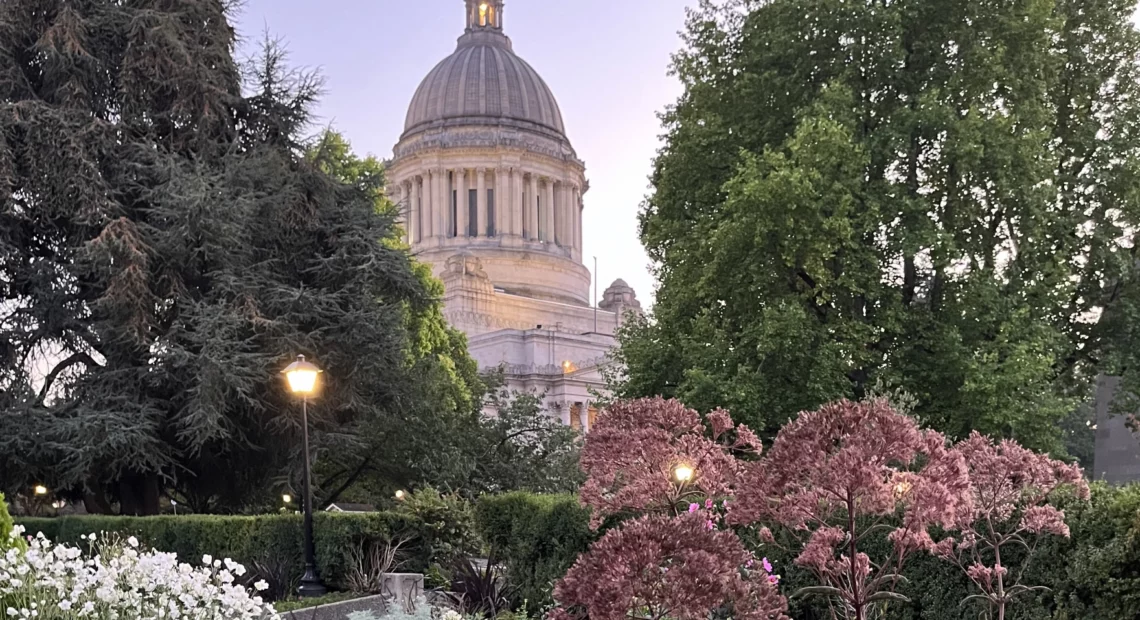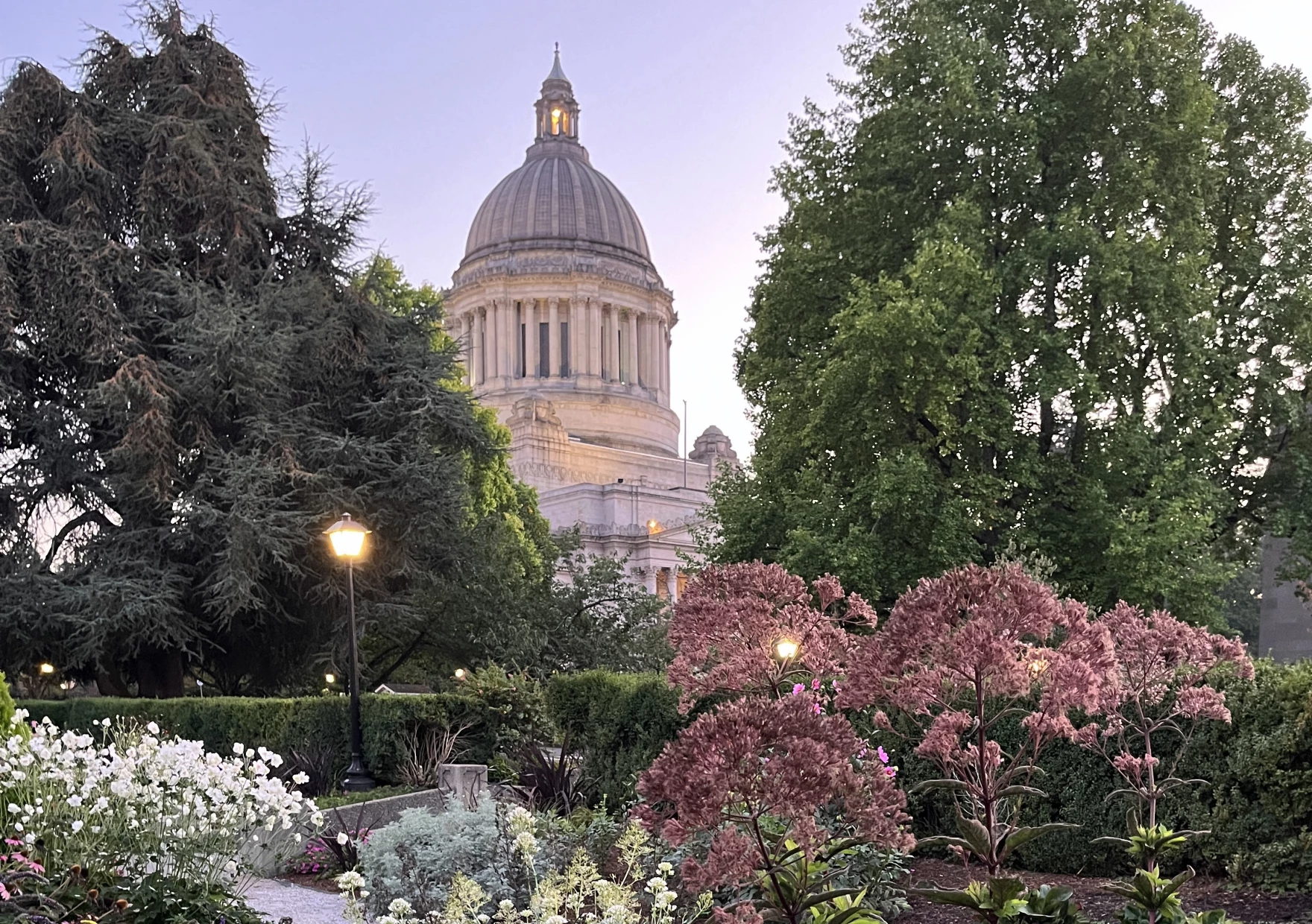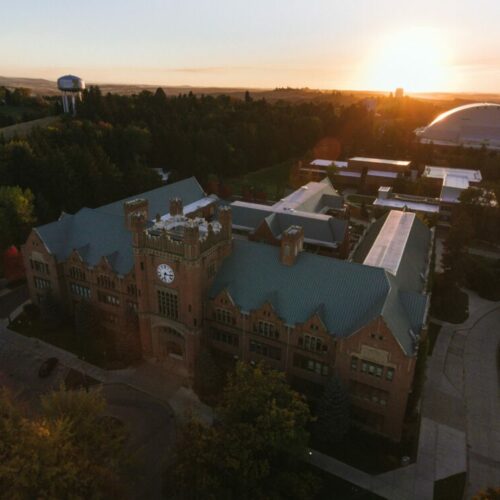
Here are six issues atop the agenda for the 2023 Washington Legislature
Read
Washington state voters and lawmakers appear to be in close alignment on their top priorities for the incoming Washington Legislature. The 2023 session gavels to order at noon on Monday, January 9.
A new statewide Crosscut/Elway poll ranked cost of living, housing costs and related economic aspects as the top voter priority, cited by 34% of respondents. Public safety, including crime and drug use, came in second place with 23% of voters mentioning that first in response to an open-ended question. Close behind, 22% of the poll respondents said addressing homelessness should be the legislature’s main priority this year.
“Two years ago, Covid was leading at 52%, which is almost the only time any of these has ever gone over 50%. This year it is down to 2%,” veteran pollster Stuart Elway said at a legislative preview co-hosted by Allied Daily Newspapers and the Washington Association of Broadcasters. “So, apparently the pandemic is over — at least as far as the legislature is concerned.”
Democrats are firmly in control of both chambers of the Washington Legislature and hold the governor’s office. Gov. Jay Inslee spent the bulk of his hour at the mic at Thursday’s legislative preview event in Olympia describing housing and homeless initiatives that he would like the legislature to pass and fund, or refer to the voters as a bond measure.
“I’m asking the legislators to step up to the line and really take a big whack out of homelessness in this legislative session,” Inslee told the audience. “This is not a self-correcting problem. This is not something we can wish away… We have to approach it at scale. Nibbling little small actions is not going to take the necessary bite out of homelessness that we need.”
Here are the expected approaches the legislature will take to six identified priorities:
Housing/homelessness: The through-line of lawmakers’ pre-session statements and bill drafts is to increase housing supply to address a root cause of homelessness. One option on the table is to change zoning statewide to allow denser housing in city neighborhoods, including those now zoned for single-family homes. Inslee has separately urged the Legislature to ask voters next November to authorize $4 billion in new borrowing. The proceeds of this bond measure would subsidize the creation of lots more affordable rental housing, including units with support services for people leaving chronic homelessness, as well as to increase mental health and substance abuse treatment capacity.
Budget and taxes: The only task the Legislature absolutely can’t leave town without completing is to pass a state budget for the next two years. The strength of the economic recovery from the pandemic shock has generated a roughly $4 billion surplus in the state treasury. Debate about how to spend or save that money — or give some back in the form of tax relief — will span the entire 2023 session. No significant new taxes — or tax cuts — are on the table for 2023-25. The governor and Democratic budget writers have turned aside Republican entreaties for a broad-based tax cut in recent weeks.
Drug laws: Due to a state Supreme Court decision, the Legislature is under pressure to rewrite the statutes criminalizing simple possession of illegal drugs. A blue-ribbon commission recommended decriminalization, but legislative leaders say there is insufficient support to go that far. The trick will be to find a balance of carrots and sticks to steer users out of the court system and persevere in drug rehabilitation and treatment.
Abortion rights: Washington voters have repeatedly codified abortion rights into state law through ballot measures, but Democrats in Olympia want to go further in the wake of the U.S. Supreme Court’s decision to overturn Roe v. Wade. Seattle-area senators with backing from Inslee propose to enshrine abortion rights in the state constitution. However, the proposed state constitutional amendment does not appear to have the necessary two-thirds support in the Legislature to advance. Other abortion-related measures aim to protect the privacy of women who come to Washington to terminate a pregnancy from a state that outlawed abortion.
Guns: Gun safety and gun rights advocates will square off again over proposals backed by state Attorney General Bob Ferguson and Inslee to ban military-style, semi-automatic rifles and to institute a 10-day waiting period for gun purchases along with a mandatory safety training course. This year’s gun debates unfold with the still fresh memory of a school shooting on Election Day at Ingraham High School in Seattle, which left one student dead.
Crime/public safety: Rising crime and understaffed police forces were campaign issues last fall. Some citizens and mayors, along with elected GOP lawmakers, want to roll back restrictions on police tactics passed in the wake of the George Floyd killing in Minnesota — starting with the strict criteria for when police can initiate a high-speed pursuit.
Other proposals to address public safety include budgeting money to make grants to local agencies for officer hiring and retention bonuses as well as opening additional police academy campuses in central and eastern Washington so more trainees can stay closer to home while preparing to become law officers.
Debating circuses and more under the legislative big top
In the early going, every legislative session encounters bills that provide levity, spice or revelation. This year will feature proposals to ban circuses from visiting Washington if the acts feature exotic animals such as elephants, lions and monkeys. Another pre-filed measure would ban octopus farming. Yet another measure represents a re-run of a proposal originally suggested in 2019 by students from Elmhurst Elementary to make Suciasaurus rex the official state dinosaur. The civic-minded fourth graders have long since moved on to middle school.
The Washington Legislature meets for 105 days in odd-numbered years like this one to write the two-year state budget. The governor can call an overtime session if something important is left undone. In even-numbered years — which you can think of as the mop-up gathering — Washington legislators convene for a 60-day session.
The 2023 session will be fully in-person in Olympia, a return to normal from the mostly virtual set-up of the past two sessions due to the coronavirus pandemic. Many committee hearings will retain the option for remote public testimony, a pandemic innovation which community activists residing at a distance from the state capitol appreciated. All committee meetings as well as state House and Senate floor sessions are live streamed for anyone to follow along by the state version of C-SPAN called TVW.
The Oregon Legislature convenes its 2023 session on Tuesday, January 17. Democratic Gov.-elect Tina Kotek has likewise identified homelessness and housing as a top priority for the upcoming session in Salem.
















